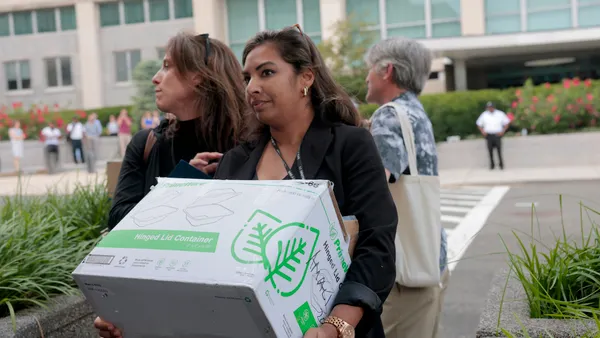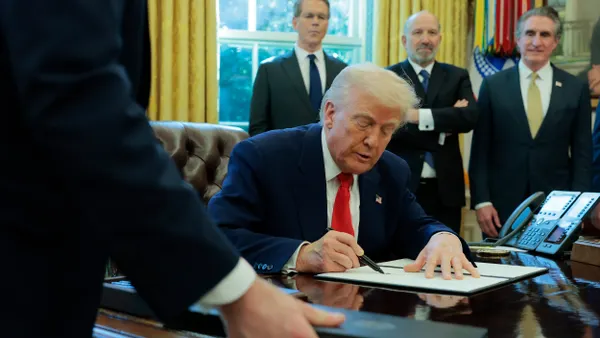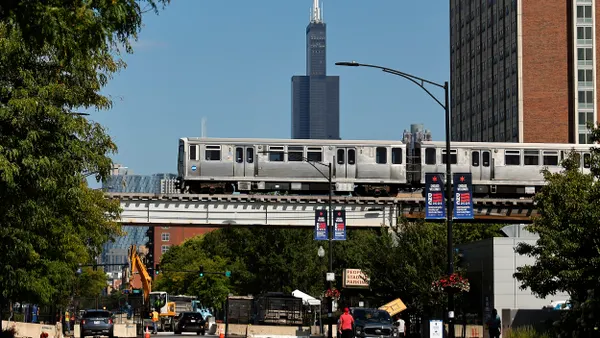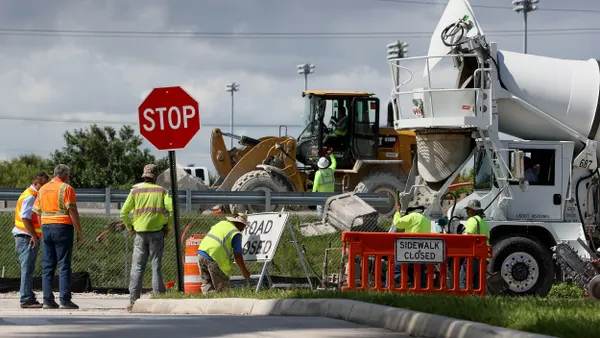Editor's note: This article was originally published in American City & County, which has merged with Smart Cities Dive to bring you expanded coverage of city innovation and local government. For the latest in smart city news, explore Smart Cities Dive or sign up for our newsletter.
The Importance of Proactive Facilities Maintenance
A proactive approach to facilities maintenance is essential for government agencies. Instead of waiting for equipment to fail, conducting regular inspections and preventative maintenance helps avoid unexpected breakdowns, reduces the need for costly repairs, and enhances energy efficiency. Buildings that are well-maintained can better serve their communities, ensuring a safe and comfortable environment for both employees and visitors.
However, even with the best efforts, deferred maintenance often arises due to budget constraints or staffing shortages. Deferred maintenance refers to the repairs and upgrades that are delayed due to limited funds or resources. When deferred maintenance accumulates, it can create a backlog, increasing the risk of equipment failures and building disruptions. To avoid these problems, agencies must leverage every available tool and resource, including cooperative purchasing.
How to Prevent Deferred Maintenance
Deferred maintenance often occurs when facilities lack the funds or manpower to stay on top of ongoing maintenance needs. As these tasks pile up, they can cause significant issues down the road. Preventing deferred maintenance involves creating an effective strategy for both preventative and reactive maintenance. Here are a few key practices that can help reduce the risk of deferred maintenance:
- Create a Daily Maintenance Routine: Incorporating regular maintenance into your team’s daily tasks ensures that nothing falls through the cracks. Using tools like checklists or schedules can keep teams on track, making sure critical inspections and minor repairs are performed regularly.
- Keep Detailed Records and Manuals: Having easy access to equipment manuals and maintenance guides allows staff to troubleshoot issues before they escalate. Knowing when to change filters, replace belts, or check for wear and tear can save time and money.
- Conduct Regular Inspections: Regularly inspecting equipment and systems—such as HVAC systems, electrical wiring, and plumbing—can help detect small problems before they turn into larger, costlier issues. Keep an eye out for potential issues like frayed cords, damaged equipment, or clogged filters.
- Maintain Cleanliness: Dust and debris can easily cause equipment to overheat or malfunction. Ensuring that your spaces are kept clean can prevent damage to systems and equipment, extending their useful life.
By implementing these preventive measures, government agencies can reduce the need for major repairs down the road and keep their buildings running efficiently.
When Deferred Maintenance Happens: How Cooperative Purchasing Helps
Despite the best efforts to stay on top of facilities maintenance, there are times when repairs are needed suddenly. Whether it’s replacing a broken HVAC unit or upgrading a worn-out security system, these unexpected needs can often strain limited resources. This is where cooperative purchasing organizations offer a game-changing solution.
Cooperative purchasing provides government agencies with immediate access to a wide range of competitively solicited, publicly awarded contracts for products and services. This model aggregates the purchasing power of multiple agencies, allowing you to secure better pricing and favorable terms from suppliers.
For instance, if your agency is facing a backlog of maintenance tasks and urgently needs parts or equipment, cooperative purchasing can connect you with trusted suppliers that offer comprehensive solutions, from HVAC systems to janitorial services and other MRO supplies, all available through cooperative contracts. This means that instead of waiting weeks for competitive bidding, your agency can procure what it needs quickly and at a competitive price.
Next Steps
By leveraging cooperative purchasing solutions, agencies can avoid delays, reduce costs, and access high-quality products and services. Whether it's conducting regular HVAC inspections, replacing roofing materials, or upgrading security systems, having access to a trusted network of suppliers can make all the difference in keeping public facilities running smoothly.
About the Author
www.omniapartners.com








